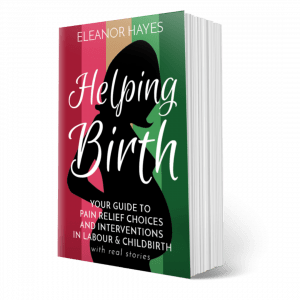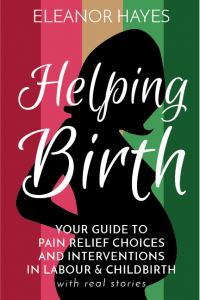BRAIN – An informed decision-making tool for labour
Your Birth Plan
Birth is unique to every mum and every baby and although it is beneficial to write some birth preferences in a birth plan to detail things you feel strongly about to your care providers, you may find you have to make some decisions about your care during labour and birth.
50% of births in the UK have some form of intervention (1) and so the chances are you may find you have to get a little bit of help in your labour. This could be because you need some pain relief after all (and that is FINE – labour can hurt!), perhaps your labour is not progressing, or baby seems to be needing a bit of help coming out.
If interventions are being suggested to you by your midwife or doctor, then here is a really great tool in your birth plan for helping you and your partner decide if it is the right course of action for you.
Of course if there is an emergency situation then you will not have a chance to go through these options (and believe me, it will be VERY CLEAR if this is the case and there is no question of opting out of the intervention).
But if your birth is just not following a hospital timetable, or if you feel strongly against a course of action, this BRAIN acronym can help you to decide what to do. That may be to go ahead with an intervention, or to politely refuse it.
But you can be confident that you are making an informed decision.
The BRAIN Acronym
This is a fantastic acronym to prompt you to ask questions about the intervention being suggested.
B – what are the BENEFITS of this course of action?
R – What are the RISKS?
A – Are there any ALTERNATIVES?
I – What are the IMPLICATIONS of following this course of action? Will it make further INTERVENTIONS more likely?
N – What if we do NOTHING and wait for an hour or 2 before doing anything?

Of course if there is an emergency situation then you will not have a chance to go through these options (and believe me, it will be VERY CLEAR if this is the case and there is no question of opting out of the intervention).
But if your birth is just not following a hospital timetable, or if you feel strongly against a course of action, this BRAIN acronym can help you to decide what to do. That may be to go ahead with an intervention, or to politely refuse it.
But you can be confident that you are making an informed decision.
References
(1) Statistics from Hospital Episode Statistics from 2011-2012, I mainly used the spreadsheet of raw data.
https://www.hscic.gov.uk/article/2021/Website-Search?productid=10061&q=birth&sort=Relevance&size=10&page=1&area=both#top


